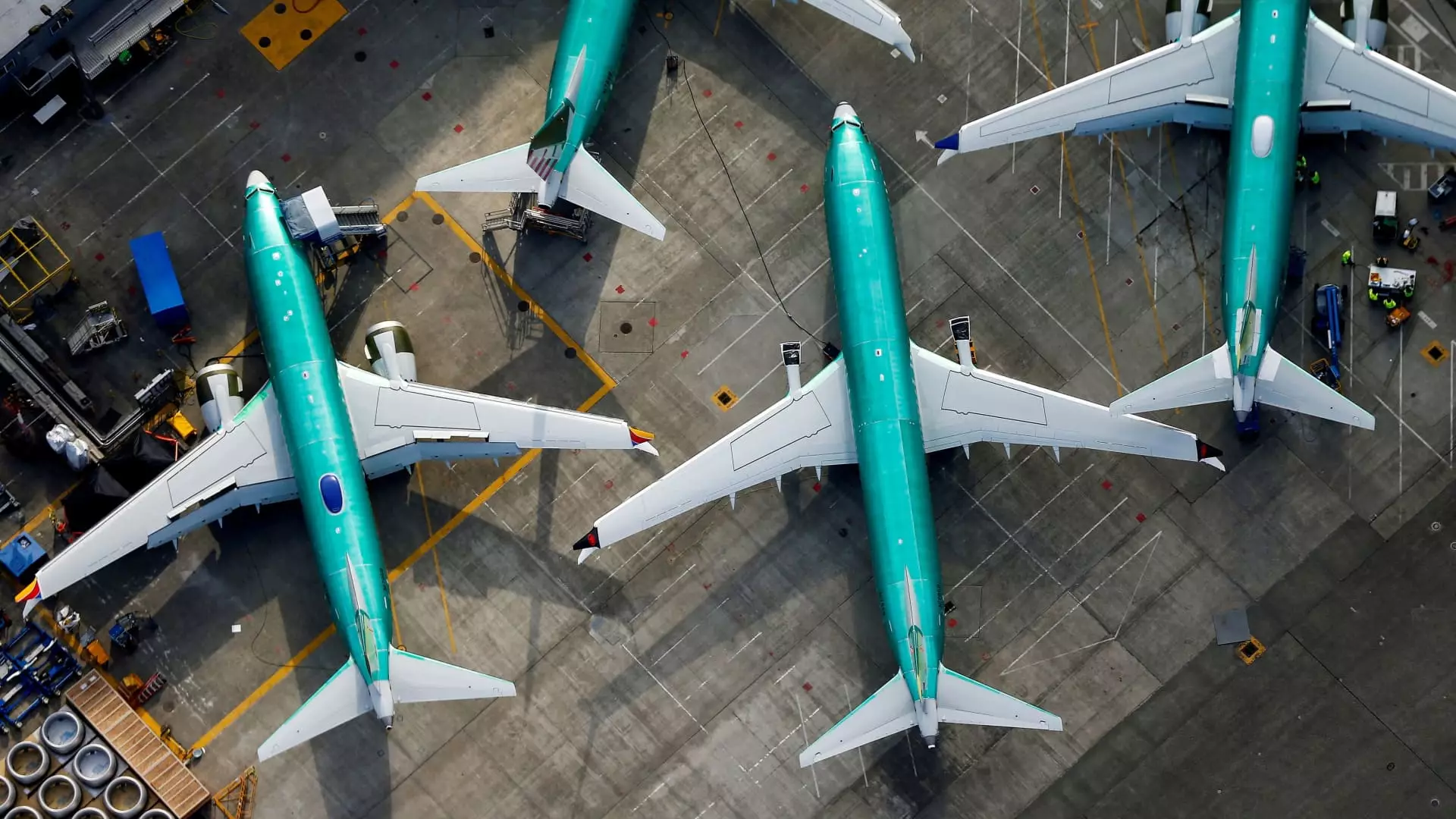The recent crisis involving Boeing’s Max airplanes has prompted some of the aircraft manufacturer’s biggest customers to reassess their growth plans for the foreseeable future. Southwest Airlines, known for operating a fleet of Boeing 737s, has adjusted its 2024 capacity forecast due to a decrease in expected Boeing deliveries. The airline initially anticipated receiving 79 Boeing 737 Max planes, but that number has been significantly reduced to 46. This decision highlights the challenges faced by airlines that heavily rely on Boeing’s aircraft, signaling a need for Boeing to improve its operations in order to regain the trust of its customers.
Similarly, Alaska Airlines has found itself in a state of flux as uncertainty looms over the timing of aircraft deliveries. The increased scrutiny from regulatory bodies such as the Federal Aviation Administration and the Department of Justice has led to delays in the certification and delivery of new Boeing aircraft. This uncertainty has caused Alaska Airlines to reevaluate its 2024 capacity estimates, underscoring the ripple effects of Boeing’s ongoing issues on the airline industry as a whole.
United Airlines’ CEO, Scott Kirby, has taken a decisive stance in response to Boeing’s challenges. Kirby announced at a recent conference that the airline has requested Boeing to halt the production of Max 10 planes, which have yet to receive certification from the FAA, and focus on producing more Max 9s instead. The uncertainties surrounding the certification timeline for the Max 10 have prompted United Airlines to adjust its fleet plan and prioritize aircraft that are already in operation. The airline’s decision to pause pilot hiring further underscores the impact of delayed Boeing deliveries on its operations.
Boeing’s latest crisis was triggered by a door panel incident involving a Max 9 plane during an Alaska Airlines flight in January. The subsequent investigation revealed quality control issues, with bolts on the door panel appearing to be unattached when the planes left Boeing’s factory in Washington state. This incident heightened scrutiny on Boeing’s manufacturing processes, leading to increased regulatory oversight and audits of its production facilities.
In response to the crisis, Boeing has pledged to address its quality control problems and enhance its production processes. The company has initiated work pauses to engage with employees and implement corrective measures to ensure compliance with regulatory standards. Boeing’s CEO, Dave Calhoun, has vowed to eradicate quality control issues and strengthen the company’s commitment to delivering high-quality aircraft. The company has also committed to conducting regular compliance checks and audits to prevent future manufacturing deficiencies.
Boeing’s ongoing Max crisis has had far-reaching implications on its airline customers, leading to disruptions in aircraft deliveries, fleet planning adjustments, and heightened scrutiny on the company’s manufacturing practices. The recent incidents have underscored the importance of quality control in the aviation industry and raised questions about Boeing’s ability to regain the trust of its customers. As Boeing works to address its challenges and improve its production processes, it will be essential for the company to prioritize transparency, accountability, and compliance in order to restore confidence in its brand and ensure the safety and reliability of its aircraft.



Leave a Reply